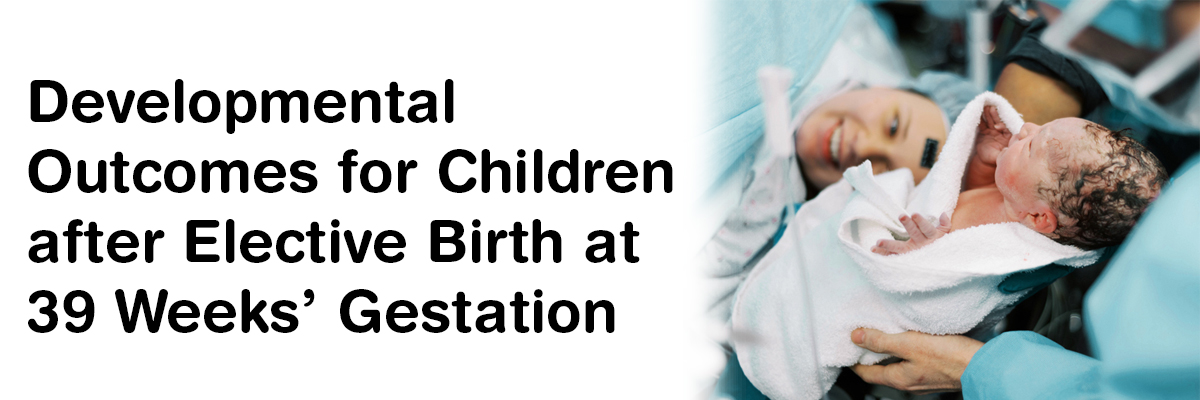
 IJCP Editorial Team
IJCP Editorial Team
Developmental Outcomes for Children after Elective Birth at 39 Weeks’ Gestation
A recent study explored the association between elective birth at 39 weeks of gestation and the risk of childhood developmental outcomes.
This was a cohort study, that entailed two causal inference analyses from Australian statewide, population-based data. Perinatal data were included from January 1, 2005, and December 31, 2013.
The cohort was categorized into two groups. Elective birth between 39 weeks and 0 days’ and 39 weeks and 6 days’ gestation formed group A, while birth labor induction among those born electively at 39 weeks’ gestation formed the group B.
Overall, 15,927 elective births at 39 weeks’ gestation were selected. Meanwhile, 176,236 were expectantly managed with subsequent birth between 40 and 43 weeks of gestation. The findings showed that elective birth at 39 weeks’ gestation was not associated with an altered risk of childhood global developmental vulnerability or with developmental vulnerability in any of the individual domains.
When only elective births at 39 weeks’ gestation were analyzed, induction of labor was not associated with childhood developmental vulnerability compared with planned cesarean delivery or with vulnerability in any individual domains.
Hence, elective birth at 39 weeks of gestation was not associated with childhood developmental vulnerability. In addition, birth after induction of labor or by elective cesarean delivery rendered similar developmental outcomes among children born after 39 weeks of gestation.
Source: JAMA Pediatrics. 2022 May 9. doi: 10.1001/jamapediatrics.2022.1165.

IJCP Editorial Team
Comprising seasoned professionals and experts from the medical field, the IJCP editorial team is dedicated to delivering timely and accurate content and thriving to provide attention-grabbing information for the readers. What sets them apart are their diverse expertise, spanning academia, research, and clinical practice, and their dedication to upholding the highest standards of quality and integrity. With a wealth of experience and a commitment to excellence, the IJCP editorial team strives to provide valuable perspectives, the latest trends, and in-depth analyses across various medical domains, all in a way that keeps you interested and engaged.





















Please login to comment on this article